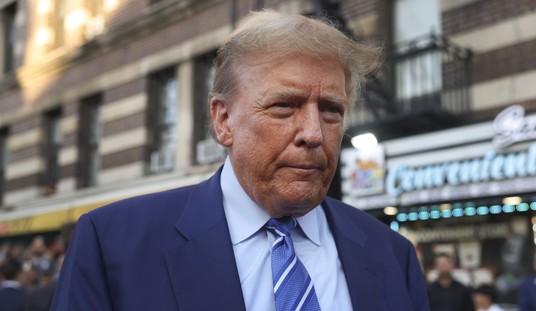This report, if true, would have been a devastating game changer on the debt deal:
The debt ceiling deal will pass the Senate early this afternoon. No suspense there. But the vote will be worth watching for another reason: Three Republican Senate sources tell TWS that senators who vote against the deal will be ineligible to serve on the so-called “supercommittee” for deficit reduction that the legislation creates.
While there’s certain logic to such a policy, it could be self-defeating. Excluding those who vote against the debt deal will ensure that some of the most fiscally conservative members of the Senate Republican caucus, including most of its freshmen, will be reading about the committee’s activities in the newspaper rather than guiding its decisions. Among those who have already declared their opposition to the deal: libertarian-leaning senators Mike Lee and Rand Paul; Jim DeMint, the aggressive fiscal hawk from South Carolina; conservative reformers Ron Johnson from Wisconsin and Pat Toomey from Pennsylvania; the ranking member on the Senate Budget Committee, Jeff Sessions; and Florida’s Marco Rubio, already one of the highest-profile conservatives in Congress.
I stressed would have been because Senate Republicans have begun issuing categorical denials of the story. One senior Senate aide tells Townhall, "nobody has any idea where [Stephen Hayes] got that from." This expression of confusion was followed-up by more affirmative push-back: "There are no requirements on who serves on the committee. The only thing [Senate Republican leadership] agreed to was to appoint three people to the committee, just as Boehner, Reid, and Pelosi did." This is reassuring, but I'd still feel more comfortable with some on-the-record, blanket denials -- how about you? Stay tuned.
UPDATE - McConnell spokesman Don Stewart: "The story is wrong. There is no requirement to vote for the bill. Period." Phew. One element of my qualified, tepid support for this flawed deal was a belief that strong fiscal conservatives would comprise the GOP's contingent on the joint special committee. If Hayes' initial sources had been correct, the compromise would have instantly become appreciably worse, and many conservatives would have rightly felt betrayed.
























Join the conversation as a VIP Member